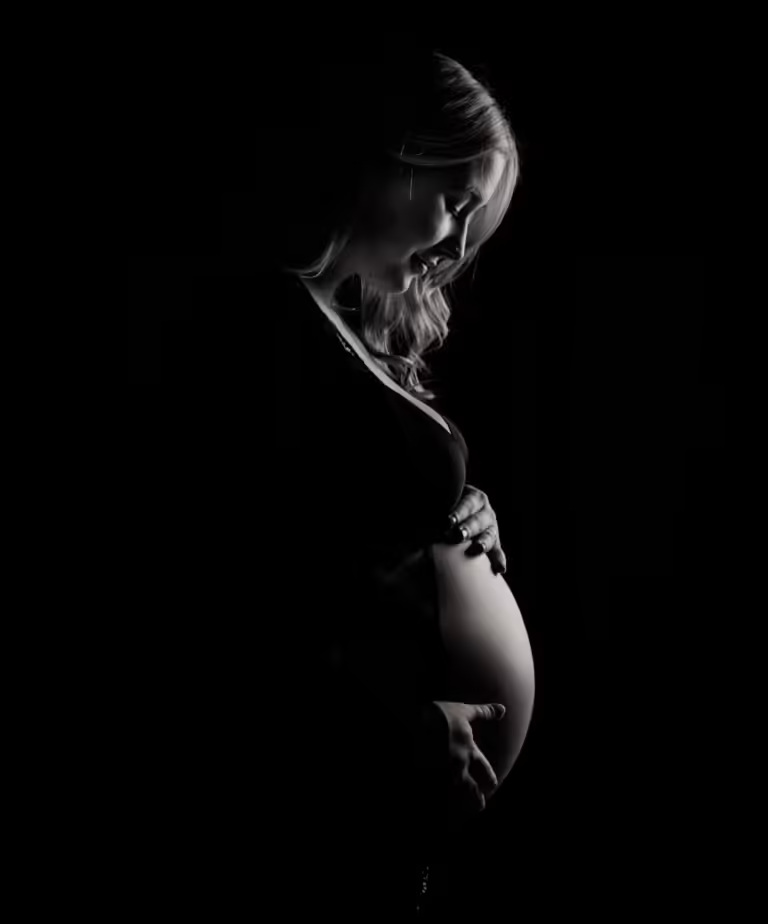Men’s Experiences of Pregnancy Confirmation: A Journey into Fatherhood
While the joys and challenges of motherhood have been extensively explored, the experiences of men transitioning into fatherhood remain relatively understudied. For years, research on fatherhood tended to focus on negative aspects, often portraying men as ill-equipped or struggling to adapt to their new roles. This approach, however, overlooked the rich and diverse ways men experience and engage with fatherhood. Thankfully, recent research has shifted towards understanding men’s perspectives, providing valuable insights into their unique journeys.
This blog post delves into the findings of a study that explored men’s experiences of pregnancy confirmation, a pivotal moment in the transition to fatherhood. By understanding the thoughts, emotions, and actions of men during this early stage, we can better support and empower them as they embark on this life-changing journey. The study employed an ethnographic approach, allowing researchers to delve into the real-life experiences of expectant fathers within their social and cultural contexts.
Through in-depth interviews and focus groups, the study captured the voices of men from various backgrounds, revealing a range of perspectives and experiences. By sharing these stories, we hope to shed light on the evolving nature of fatherhood and encourage greater understanding and support for expectant fathers.

Understanding the Research: A Deep Dive into Methodology
To gain a comprehensive understanding of men’s experiences with pregnancy confirmation, the study employed a qualitative research approach known as ethnography. Ethnography is particularly well-suited for exploring cultural phenomena and providing rich descriptions of people’s behaviors within their everyday lives. While traditionally used to study “other” cultures, ethnography has increasingly been recognized as a valuable tool for investigating contemporary cultures and social experiences.
Data collection for the study involved in-depth interviews with expectant fathers. A total of 18 men, both first-time fathers and those with previous parenting experience, were recruited from a town in the north of England. The participants were primarily white, middle-class, and well-educated, representing a specific segment of the population. It’s important to acknowledge that experiences may vary across different social and cultural groups.
The men participated in three interviews throughout their partners’ pregnancies and early fatherhood. The initial interview, which forms the basis of this blog post, focused on their experiences of pregnancy confirmation and their early involvement in the pregnancy. These interviews were conducted in a conversational style, allowing the men to share their stories openly and without interruption. The researcher used active listening techniques to ensure clarity and encourage further exploration of their experiences.
Ethical considerations were carefully addressed throughout the study. The participants were informed of the study’s purpose, the use of tape recording, and their right to confidentiality and anonymity. While formal ethics committee approval was not required for this particular study, the researchers adhered to ethical principles of informed consent, confidentiality, and responsible data management.
Bridging the Gap: Men’s Search for Connection During Pregnancy
The study revealed a recurring theme among expectant fathers: a strong desire to be involved in the pregnancy journey, coupled with a sense of detachment due to the lack of a direct physical connection to the developing baby. This feeling of being “one step removed” was a common experience for the men, regardless of whether it was their first child or they had previous parenting experience.
To overcome this sense of distance, the men actively sought ways to connect with the pregnancy and their unborn child. The study identified these efforts as “body-mediated moments,” instances where men interacted with the pregnancy through the woman’s body. These moments served as a bridge, allowing them to share in the physical experience of pregnancy and forge a closer bond with their partners and babies.
Body-mediated moments took various forms throughout the pregnancy journey. The initial confirmation of the pregnancy, often involving a home pregnancy test, was a significant event for many men. Other key moments included feeling the baby’s movements, attending ultrasound scans, and ultimately, being present during labor and delivery. Each of these experiences offered a unique opportunity for men to connect with the pregnancy on a physical and emotional level.
By participating in these body-mediated moments, men were able to actively engage with the pregnancy and develop a sense of involvement and connection. These moments became part of their own personal transition into fatherhood, helping them navigate the uncertainties and excitement of this new chapter in their lives.

The Moment of Truth: Pregnancy Confirmation and its Impact
The study found that the confirmation of pregnancy was a pivotal moment for expectant fathers, marking the beginning of their journey into fatherhood. The way men experienced this moment varied depending on whether the pregnancy was planned or unplanned. For those who had planned for a child, the confirmation brought feelings of elation and excitement, solidifying their hopes and dreams for the future.
However, for men facing an unplanned pregnancy, the initial reaction was often characterized by shock, fear, and even resentment. These emotions highlight the complex range of emotions men may experience during this time, regardless of whether the pregnancy was anticipated.
The study also revealed differing levels of involvement in the actual confirmation process. Some men actively participated by purchasing pregnancy tests, being present during the test, or even taking part in the testing procedure itself. This hands-on approach allowed them to feel more directly involved in this significant event. Others, however, took a more passive role, receiving the news from their partners after they had taken the test.
Regardless of their level of involvement, the pregnancy test itself held significant meaning for many men. The test, with its clear visual results, provided a concrete and scientific confirmation of the pregnancy. This aspect was particularly important for some men, as it aligned with their understanding of the world through a scientific lens. The test results became the “first scientific evidence” of the baby’s existence, transitioning the pregnancy from a possibility to a tangible reality.
For some men, particularly those with previous experience of pregnancy and childbirth, the confirmation process extended beyond the pregnancy test. They relied on their knowledge of their partner’s body and menstrual cycle, recognizing the subtle signs and changes that indicated pregnancy. In these cases, the pregnancy test served as a secondary confirmation, reinforcing what they already suspected.
Deciphering the Pregnancy: Different Ways of Knowing
The study’s findings highlighted a fascinating interplay between different forms of knowledge surrounding pregnancy. For women, the experience of pregnancy is primarily embodied, characterized by physical sensations, hormonal changes, and the intimate awareness of a growing life within them. This embodied knowledge provides a unique and direct connection to the developing baby.
However, the medicalization of pregnancy and childbirth has introduced a contrasting form of knowledge, one that relies on technology, scientific measurements, and objective observations. Ultrasound scans, blood tests, and other medical interventions provide valuable information about the baby’s health and development, but they can also create a sense of distance and detachment for both women and men.
The concept of “authoritative knowledge” plays a crucial role in understanding how these different forms of knowing interact. Authoritative knowledge refers to the knowledge system that is granted greater legitimacy and power within a particular context. In the realm of pregnancy and childbirth, medical knowledge often holds the position of authority, sometimes overshadowing and devaluing women’s embodied experiences.
The study revealed how this dynamic played out in the experiences of expectant fathers. Some men, particularly those more accustomed to scientific and technological ways of thinking, relied heavily on the pregnancy test and other medical confirmations as the primary source of knowledge about the pregnancy. For them, the visual and objective nature of these confirmations provided a sense of certainty and understanding.
However, other men, often those with prior experience of fatherhood, placed greater value on their partner’s embodied knowledge. They recognized the significance of her physical sensations, emotional responses, and intuitive understanding of the pregnancy. These men were able to bridge the gap between the medicalized view of pregnancy and the lived experience of their partners, appreciating both forms of knowledge as valuable and complementary.
Reflecting on the Journey: Body-Mediated Moments and the Transition to Fatherhood
In contemporary Western societies, where the body and its experiences hold significant cultural weight, the transition to motherhood is often characterized by the woman’s profound physical and emotional engagement with pregnancy and childbirth. However, for expectant fathers, who lack this direct embodied experience, the journey into fatherhood can present unique challenges. The study highlighted how men often feel a sense of distance from the pregnancy, despite their desire to be involved and connected.
The concept of “body-mediated moments” emerged as a central theme in understanding how men navigate this challenge. By actively participating in moments that involve physical interaction with the woman’s pregnant body, men can bridge the gap between their own experiences and the realities of pregnancy. These moments, such as pregnancy confirmation, feeling the baby’s movements, and attending ultrasounds, allow men to share in the physical journey and develop a deeper connection with their partners and unborn children.
The study’s findings have important implications for healthcare professionals and childbirth educators. By recognizing the significance of body-mediated moments for expectant fathers, they can provide more inclusive and supportive care that acknowledges and validates men’s experiences. This includes creating opportunities for men to participate in prenatal appointments, encouraging them to engage in physical touch and interaction with their partners’ pregnant bodies, and fostering open communication about their feelings and concerns.
It is important to acknowledge the limitations of the study, particularly the relatively small and homogenous sample size. The experiences of men from diverse social, cultural, and economic backgrounds may differ significantly from those represented in this research. Further studies are needed to explore the experiences of a wider range of expectant fathers and to investigate the long-term impact of men’s involvement in pregnancy confirmation and other body-mediated moments on their relationships with their children.
Despite these limitations, the study provides valuable insights into the evolving nature of fatherhood and the importance of recognizing and supporting men’s experiences during the transition to parenthood. By understanding the challenges and opportunities that men face, we can create a more inclusive and supportive environment for all expectant parents, fostering strong family bonds and positive parenting experiences.
Sharing the Journey: Inviting Your Voices and Providing Support
The experiences shared in this study offer a glimpse into the diverse ways men navigate the path to fatherhood. We recognize that every individual’s journey is unique, shaped by personal values, cultural backgrounds, and relationship dynamics. We invite you, our readers, to share your own stories and insights in the comments section below. Your voices contribute to a broader understanding of men’s experiences and help create a more inclusive conversation about fatherhood.
For expectant fathers seeking support and information, numerous resources are available to assist you on this journey. Organizations like the National Childbirth Trust (NCT) offer antenatal classes and support groups specifically designed for fathers, providing a safe space to connect with other expectant dads, share experiences, and learn valuable parenting skills. Additionally, many hospitals and community centers offer prenatal education programs that cater to both mothers and fathers, fostering a collaborative approach to preparing for parenthood.
Online communities and forums can also be valuable sources of information and support. Connecting with other expectant fathers through social media or online groups allows you to share your experiences, ask questions, and learn from others who are going through similar journeys.
It is essential to remember that seeking help and support is a sign of strength, not weakness. If you are feeling overwhelmed, anxious, or uncertain about your transition to fatherhood, don’t hesitate to reach out to a trusted friend, family member, or healthcare professional. Therapists and counselors specializing in men’s issues and family dynamics can provide guidance and support as you navigate this life-changing experience.
Finally, we encourage expectant fathers to actively engage in the pregnancy journey with their partners. Communicate openly about your feelings, fears, and expectations. Participate in prenatal appointments, childbirth education classes, and other activities that allow you to connect with your partner and the developing baby. By embracing the challenges and joys of fatherhood together, you can build a strong foundation for your growing family. Remember, the journey to fatherhood is a shared experience, and your active involvement makes a world of difference.
Based on research by Draper, J. (2000). Fathers in the Making. Men, Bodies and Babies. Unpublished PhD dissertation, University of Hull, Hull.








